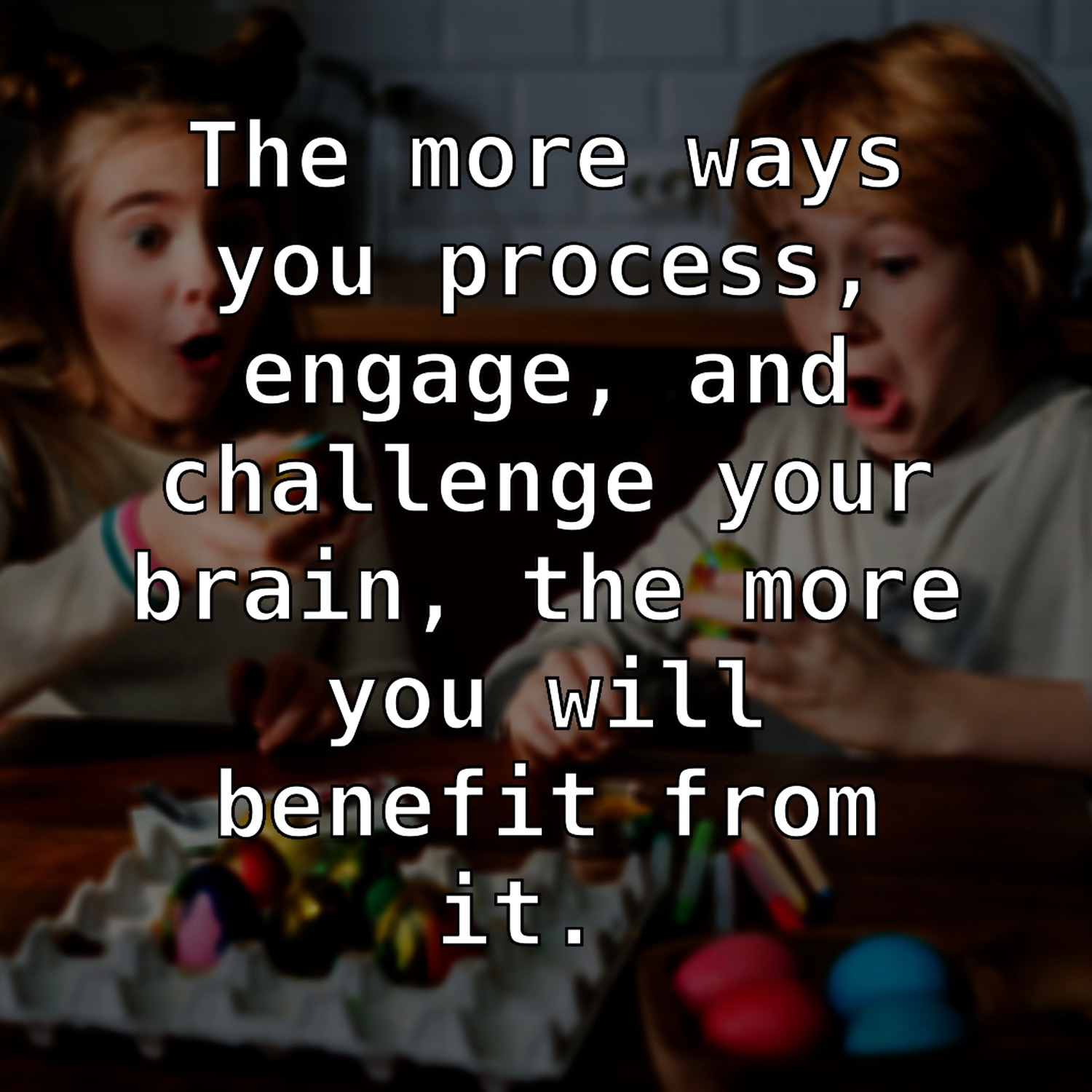Play An Instrument Or Speak A New Language

Speaking of more neural connections, learning how to play an instrument or speak a new language literally activates dormant or underused parts of your brain. These skills provide different types of adaptations, and teach you patterns and processes and how to apply them to other areas of your life. They are both truly whole-brain activities that require integrating multitudes of new information and even muscle memory. Best of all, this type of neural growth can transfer to other disciplines and practices. Finally, what about just reading or saying information aloud? This simple act has been shown to improve thinking, cognition, memory, and comprehension through something called the production effect. Information reproduction requires a significant amount of active participation and engagement. As is this chapter’s theme, the more ways you process, engage, and challenge your brain, the more you will benefit from it. Questions or comments regarding the podcast? Email the show at Podcast@NewtonMG.com or let us know what you think at http://bit.ly/hollinscomment Get the audiobook on Audible at http://bit.ly/brainboostblueprint Show notes and/or episode transcripts are available at https://bit.ly/self-growth-home Peter Hollins is a bestselling author, human psychology researcher, and a dedicated student of the human condition. Visit https://bit.ly/peterhollins to pick up your FREE human nature cheat sheet: 7 surprising psychology studies that will change the way you think. For narration information visit Russell Newton at https://bit.ly/VoW-home For production information visit Newton Media Group LLC at https://bit.ly/newtonmg #AgnesChan #Balbag #brainapps #braingameapp #brainhealth #ColinMacLeod #fluidintelligence #GottfriedSchlaug #musicaltraining #neurodegenerativedisease #TheresaKennedy #wonderfullanguage #PlayAnInstrumentOrSpeakANewLanguage #RussellNewton #NewtonMG #PeterHollins #TheScienceofSelf #BrainBoostBlueprint